What happens to items dropped off at Recycle It Saturday?
Published on 09 October 2023
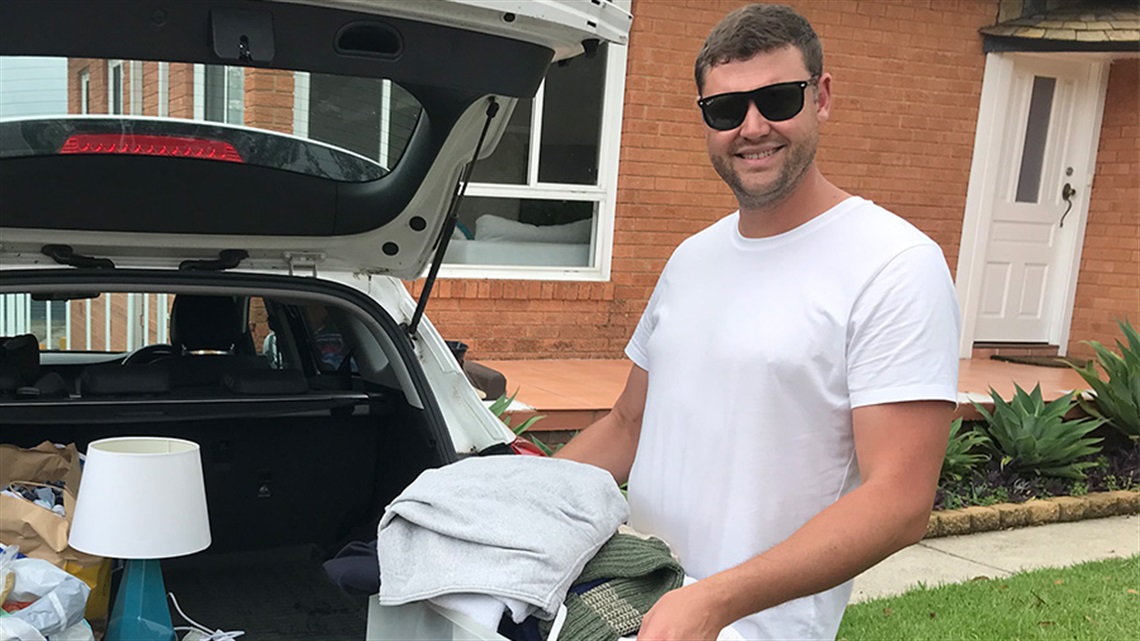
Do you want to do the right thing for the planet by recycling your old lightbulbs, batteries, X-rays, unwanted clothes – but you find you never have the time to drive around to various drop off locations?
Our Recycle It Saturday event is for you! It’s a one-stop-shop for all your ‘problem waste’ recycling needs, and you don’t even need to get out of your car.Find out what you can bring.
Have you ever wondered what happens to the items you drop off at the event? We look at 5 items and share their journey once you’ve said goodbye.

Image courtesy Pharmacycle
1. Medication blister packs
Medication blister packs are a common household item which contain valuable materials which should be recycled, but because they are composed of more than one material (aluminium and plastic) they’re unable to be recycled through our yellow-lid bins.
The good news is you can now drop them off at Recycle it Saturday and we’ll recycle them for you!
Australian company Pharmacycle transports the blister packs to Silverwater for recycling. They are shredded, grinded and split into their component parts using air-density and electrostatic separation. The plastic is provided to a Victorian company to make decking products. The foil is sent to a NSW factory and turned into aluminium pucks used in steel-making.
We’ll accept blister packs made of plastic and foil, or ones that are fully foil too. Packets need to be empty – we will not accept any containing medication.
If your blister pack came in a cardboard box, recycle the box separately in your yellow-lid bin at home. Business quantities will not be accepted.
2. Clothes in poor condition
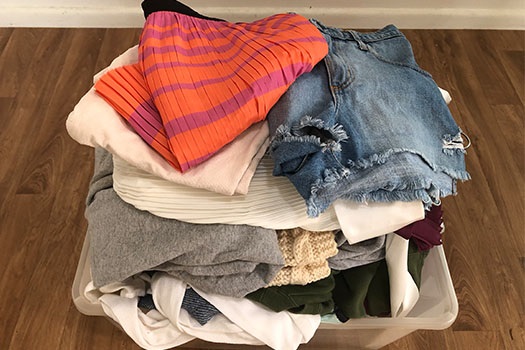
Clothes in poor condition are collected by Textile Recyclers Australia and taken to their facility in Cranebrook where they are sorted, cut and baled before being sent to their recycling partner in India. Any buttons and zippers are removed for reuse or recycling and the textiles are sorted (initially by colour), graded (based on their fibre type) then shredded into smaller pieces. Textiles made from all natural fibres such as cotton or wool are turned into recycled yarn. Mixed fibres are shredded into course yarns and felts used in insulation, rugs and blankets.
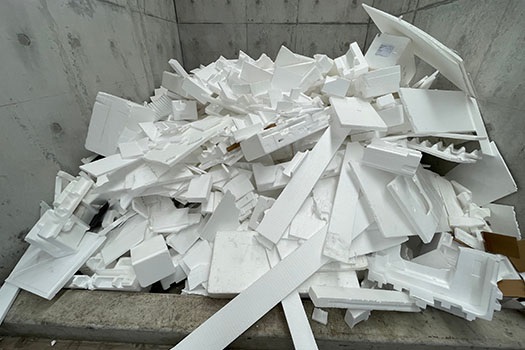
Polystyrene before being compressed
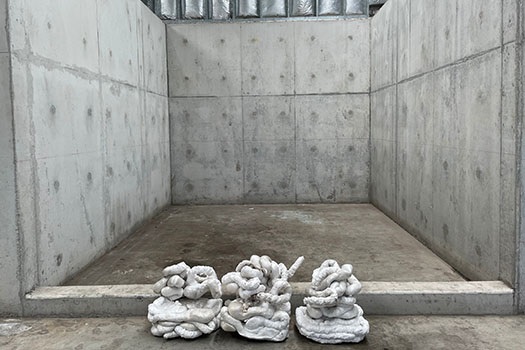
After
3. Polystyrene
If you’ve ever received a home delivery or bought a new appliance, you’ll have dealt with polystyrene.
This lightweight plastic is a nightmare for the planet. It can’t be recycled in our kerbside recycling bins, so this resource is often lost to landfill. But it could be so much more.
When you drop off your clean polystyrene at Recycle It Saturday, we compress it in our machine which reduces its size by about 90%.
This polystyrene, now heavy and solid, is easier to transport to a local processer where it is shredded down into smaller plastics pellets. These pellets are turned into items like building insulation, flooring products and photo frames.
Next time you get a delivery, save that ‘styrene and Recycle It Saturday.
Check out these before and after photos to see what our compressor can do!
4. X-rays
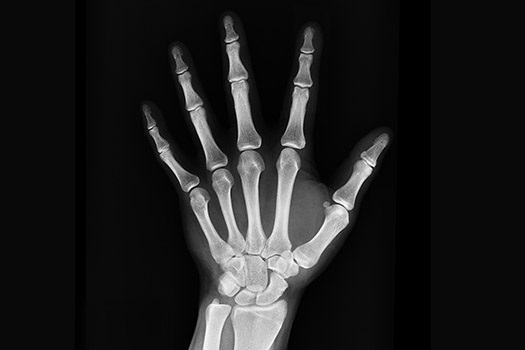
Old x-ray, MRI and CT scans or films can be fully recycled when you drop them off. As for any personal details, they get destroyed in the recycling process.
We send these films to a local processor where the silver is recycled using an electrolytic process. Firstly, the films are placed in a chemical bath that dissolves any silver in the imaging layer. An electric current is then passed through the solution, depositing the pure metallic silver on one of the electrodes.
Back in its original, precious metal state, this silver can be recycled into items such as jewellery, utensil plating and electrical components.
The remaining backing film is made from plastic, which gets recycled into a range of products, from shampoo bottles to polyester fleece.
By recycling, we can recover precious metals and reduce the need to mine for new resources.
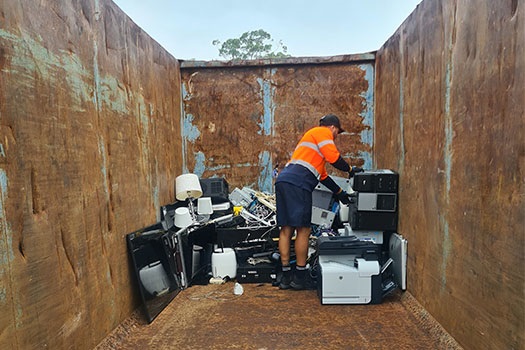
5. Electronics
E-waste, or electronic waste, includes everything from old televisions and computers to microwaves and mobile phones.
These electronics are not really waste at all, but materials with valuable resources. The electronics we collect are diverted from landfill and around 95% of raw materials recovered are recycled.
Electronics are sent to a local processor where they are sorted and broken down into various parts including glass, metals, plastics, batteries, cabling and circuit boards. These materials are used to make new products. Remember to delete your data before dropping your device off. The recycling process doesn’t include data wiping.
The plastic in many electronics and devices can be recycled into new plastic products, such as shipping pallets, outdoor furniture, play equipment and pens.
Batteries are an important item to recycle. They contain materials that are non-renewable – once we run out, they can’t be replenished. The good news is battery materials such as mercury, lithium and zinc can be recycled over and over again to make new batteries.
Some electronics may be repaired and refurbished, before being resold by our local processor. These items undergo data wiping before they are resold.
Who knows, you may have parts of your old mobile in your new device.
Find out what you can bring as well as tips on how to pack your car.
Read more about disposal options for other Problem Waste items in our Disposal and Reuse Guide.